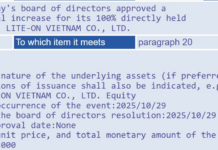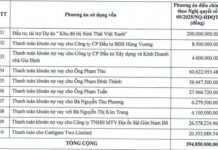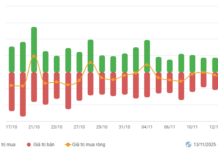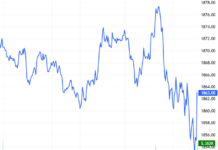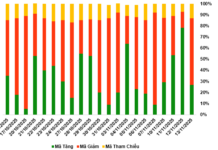These are the insights of Ms. Vu Ngoc Linh, Director of the Analysis and Market Research Department at VinaCapital, who shared with us her thoughts on investor relations (IR) practices in listed companies today.
Apart from conveying comprehensive information and providing domestic investors with the right perspective on enterprise value, it is essential to adopt international standards, connect with foreign investors, and demonstrate improved transparency.
 Ms. Vu Ngoc Linh, Director of the Analysis and Market Research Department at VinaCapital
|
As a representative from the buy-side, how has she observed the changes or improvements in the way listed companies’ IR departments function over time? And how do these improvements impact the research and decision-making process for institutional investors?
Ms. Vu Ngoc Linh: From an institutional investor’s perspective, having professional IR practices in Vietnamese listed companies, coupled with transparent, accurate, and timely information, has helped us better understand these businesses. This builds trust and enables more effective research and better investment decisions.
For instance, more listed companies are proactively organizing factory visits and direct interactions with senior leaders and company founders. This gives investors a first-hand perspective on the company’s operations and future plans, fostering trust between the enterprise and investors.
The proactive use of diverse information-sharing methods ensures that investors have a clear, up-to-date, and comprehensive view of the company’s financial situation, business operations, and future development plans. With sufficient and timely information, investors can more accurately assess the company’s potential and risks, making informed investment choices.
What criteria do investment funds typically use to evaluate the quality and effectiveness of IR departments?
We believe that the core value of IR lies in establishing a transparent, consistent, and efficient communication channel between the company and investors, including shareholders, potential investors, and the broader financial community. It also involves ensuring shareholder rights and facilitating the company’s future capital raising endeavors.
What are the key factors that make IR activities particularly useful for investors’ research and decision-making processes?
The key factors that make IR activities valuable are:
Quality and Transparency of IR: This includes criteria such as the quality of information disclosure, the level of detail in disclosures on the website, communication strategies, IR implementation strategies, accompanying IR events, and, most importantly, IR activities with financial institutions.
Prompt Disclosure and Consistency with All Investors: A crucial aspect of professional IR is the accuracy, timeliness, and consistency of information. Inconsistent, unclear, or delayed information across different communication channels can erode investors’ trust and negatively impact their investment decisions.
Enhancing Market Perception and Creating Shareholder Value: By maintaining transparency and continuously updating the market, IR’s core value is to optimize shareholder value. This is achieved by ensuring that the company’s shares are fairly valued in the market.
We also believe that the IR department should not operate in isolation from other departments like finance, legal, or sustainability. When important information is not conveyed, or messages are inconsistent across departments, it can create confusion for investors and hinder the effectiveness of IR activities.
In your opinion, how should listed companies in Vietnam develop a comprehensive IR strategy to ensure they provide sufficient information to investors? What are the key factors that need to be promoted?
To ensure the provision of sufficient and accurate information to investors, listed companies in Vietnam should develop a comprehensive IR strategy incorporating the following factors:
Internal IR Training: To ensure effective IR practices, companies are encouraged to enhance internal training for their personnel, including senior management and dedicated IR staff, on the importance of information disclosure and the necessary skills to accomplish this effectively.
Develop a Mechanism for Investor Feedback: In addition to disseminating information to investors, companies should also establish a mechanism for investors to provide feedback and suggestions. This helps companies understand investors’ perspectives and make appropriate adjustments promptly.
Transparency and Consistency of Information: Companies need to ensure that financial information, business operations, and risk factors are disclosed publicly, transparently, and timely. Financial reports and business result announcements should be presented clearly, informatively, and encouragingly, following international best practices. Additionally, information should also be provided in English.
Build Long-Term IR Activities and Communicate Enterprise Value: Even without immediate plans for capital raising in the debt and securities markets, IR activities must always clearly communicate the company’s values and create connections between investors and senior leadership. This will facilitate efficient capital raising in the future, shortening the preparation time for fundraising while maintaining high effectiveness in issuances.
Crisis Communication Management: In the event of unexpected adverse incidents, IR is crucial for managing communications with investors, minimizing panic, and ensuring the company’s perspective is clearly presented to the market.
Leveraging Technology in IR: Companies should take advantage of modern tools such as websites, emails, and social media to reach and engage with investors more quickly and effectively.
In addition to emphasizing good IR practices, we appreciate the importance of corporate governance according to ESG (Environmental, Social, and Governance) criteria, aiming for sustainable development. Companies build trust by adopting international standards for ESG information disclosure, demonstrating improved transparency.
What aspects of IR practices in listed companies in Vietnam does VinaCapital find satisfying, and what areas need improvement?
The satisfying aspects include the increasing professionalism of IR practices, specifically: (1) a more proactive approach to providing information to investors, and (2) greater openness in sharing transparent and comprehensive information.
The IR department’s proactiveness is evident in their adoption of additional investor engagement formats, such as organizing online and in-person investor meetings to provide quarterly business updates, engaging through securities companies, regularly updating websites and reports, and actively participating in workshops and forums. This marks a significant improvement from the past, when investors could only interact with companies during annual shareholder meetings. Some large enterprises even utilize messaging applications and social media to connect with investors and analysts from securities companies.
Companies with professional IR practices typically have well-defined processes and effectively manage investor relationships, thereby building trust with investors.
However, there are still areas for improvement. For instance, some companies only disclose the minimum information required by regulations, doing so formally and without sufficient detail. The information provided may lack clarity, and responses to investor inquiries can be delayed.
Additionally, foreign investors face challenges due to many companies disclosing information only in Vietnamese. In rare cases, some companies even refuse to meet with investors. This creates anxiety and mistrust, negatively impacting investment decisions.
Thank you for your insights, Ms. Linh.
Minister of Finance Hồ Đức Phớc: Aiming to upgrade the stock market
In the exchange in the early days of the Year of the Snake 2024 with the Financial Market and Monetary Journal on the orientation of the stock market’s development, especially upgrading the stock market in the near future, Minister of Finance Ho Duc Phoc emphasized that for the Vietnamese stock market to be upgraded, besides the efforts of the Ministry of Finance, strong direction from the Government, the Prime Minister and the cooperation of many ministries, sectors and businesses is crucial. As the leading agency, the Ministry of Finance is urgently and resolutely working towards this goal.
Deputy Governor: New Law Empowers Public to Monitor Banks
Deputy Governor Thai Son Do evaluates the amended Law on Credit Institutions as creating conditions for public oversight of manipulative and abusive activities by banks.
Manulife pioneers the use of technology to ensure customers’ full understanding and accurate purchases
Manulife Vietnam is thrilled to announce the official implementation of the information verification and contract issuance monitoring process for all M-Pro policyholders, effective from January 1, 2024. This comes after a successful pilot phase, demonstrating our commitment to ensuring accuracy and transparency in our insurance policies.













